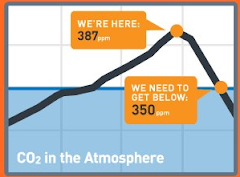Last weekend, that heroically diligent US meteorologist Anthony Watts noticed that something very odd had happened to the daily updated graph on the official Nansen website that shows how much sea-ice there is in the Arctic. Without explanation, as he reported on his Watts Up With That website, half a million square kilometres of ice simply vanished overnight.
This might have brought cheer to all those, such as Al Gore and the BBC, who have been obsessively telling us that the Arctic ice will soon disappear altogether. They were dismayed enough last winter when, after reaching its lowest point in 30 years, the ice bounded back to near "normal". This winter the freeze has been even faster and greater, making the extent of the ice, according to the other main Arctic website, Crysophere Today, 500,000 sq km greater than this time last year. How better to maintain the chosen narrative than to lose that half-million square kilometres simply by "adjusting" the graph downwards?
The warmists are so locked into their general narrative that the plummeting temperatures and abnormal snowfalls of the past two winters have thrown their army of media groupies into quite a tizzy.
The BBC did at least deign last week to notice the worst snowstorm to hit Las Vegas for 30 years, but without mentioning the freak snow and ice storms affecting many other parts of the US, as far south as New Orleans. The BBC was also quick to pick up from Pravda the unusual lack of snow in Moscow, without mentioning Siberia's record freeze that lowered temperatures to -60C.
Elsewhere in recent days, there have been reports of seven species of penguin being put on the endangered list owing to global warming – although Antarctic sea-ice this year reached easily its highest level since satellite records began in 1979.
Another warmist perennial to get an outing, from Dr Martin Warren of Butterfly Conservation, is the threat to the survival of many of our butterflies. As a longtime student of butterflies, I am keenly aware of various factors leading to the alarming decline in their numbers, but global warming is not one of them. If it were, how did such dwindling species as the Mountain Ringlet and even the Small Tortoiseshell survive the much warmer temperatures 1,000 years ago, before SUVs were invented?
Perhaps the get-out for the beleaguered warmists was provided by Friday's Today programme, when it reported heavy snowfalls on the Cairngorm ski slopes, only two years after the BBC was excitably reporting fears that ski-ing in Scotland might soon be but a memory. A local spokeswoman helpfully suggested that the thing about "climate change" was that it was always coming up with the unexpected.
So whatever happens, hot or cold, wet or dry, it can all be put down to that pesky old "climate change". As the rest of us might observe with a wry smile, how very true.









